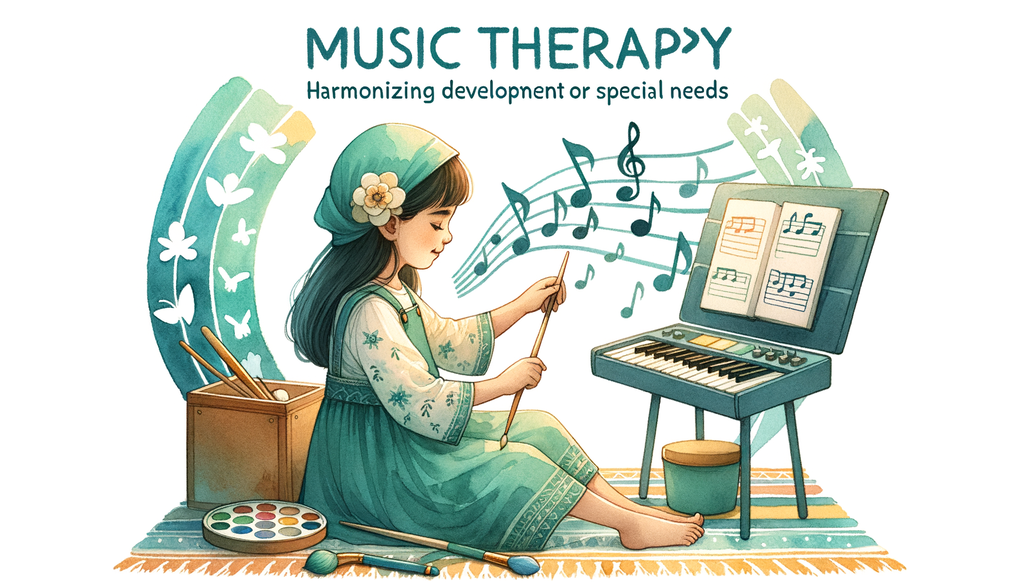Music Therapy: Harmonizing Development for Special Needs

Life itself could be likened to a symphony – a beautiful blend of rhythm, melodies, and harmonies. And for children with special needs, music therapy could become an instrumental part of their growth and development journey. This therapeutic method has seen increased recognition for its benefits in improving emotional, cognitive, and motor functions among children with diverse needs.
A Symphony of Healing: Understanding Music Therapy
Music therapy is an evidence-based intervention that uses different aspects of music - from listening and singing to playing instruments or moving to the rhythm Music Therapy Association. This therapeutic form can be particularly effective for children who have difficulties with verbal communication, as music provides them with an alternative medium of expression.
Hitting the Right Notes: the Impact of Music Therapy
Children with special needs often encounter challenges in various domains of their life. Here is how music therapy can usher improvements:
1. Enhancer of Social Skills: From group jam sessions to rhythm coordination activities, music therapy offers plenty of opportunities for social interaction and collaboration. It’s not just about playing music together - it’s about learning to listen, share, and respond to one another in a harmonious way.
2. Stimulator of Emotional Development: The emotional resonance of music can help children more easily identify and express their feelings. It can also serve as a soothing tool for children who experience anxiety or have sensory sensitivities, as we have explored in our previous post on Sensory Play: Why It Matters for Special Needs Development.
3. Benefactor for Motor Skills: For children with physical disabilities or motor coordination issues, playing an instrument can be a fun and engaging way to improve hand-eye coordination and dexterity.
Composing the Right Tune: How to Incorporate Music Therapy
Whether your little Mozart is playing the piano, dancing to a tune, or simply listening to calming classical pieces, there are myriads of ways to incorporate music into their daily routine.
1. Musical Bonding: From lullabies to grooving on their favorite tunes, create music-filled bonding moments. If you have gifted young ones, these activities can likewise boost their cognitive development and unleash their creative potentials. Our blog on Music as a Medium: Encouraging Musical Talents in Children delves more into this.
2. Musical Instruments: Keep a variety of musical instruments accessible for your child to explore and play. This could include anything from a keyboard to handheld percussion instruments like maracas or tambourines.
Seeking a Therapist: While incorporating music at home is beneficial, you may also consider seeking the services of a professional music therapist, who can provide targeted interventions based on your child’s cases.
Music therapy, in essence, is a versatile and engaging approach to supporting children with special needs. Its beauty lies in its innate inclusivity - it’s a universal language that can bridge gaps and foster connections, much like the joyous chorus of a well-played symphony. We hope this post has struck a chord and might inspire you to explore the benefits of music therapy for your loved one.
Next week we will explore different assistive technologies that can help children with special needs in their educational journeys. So, stay tuned for our post on Advancing with Assistive Technology: Tools for Special Education.